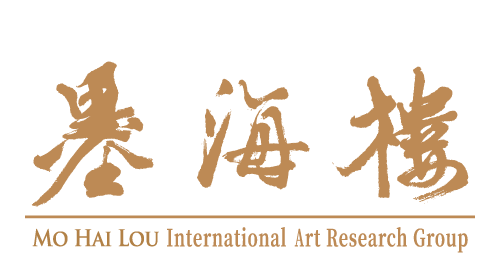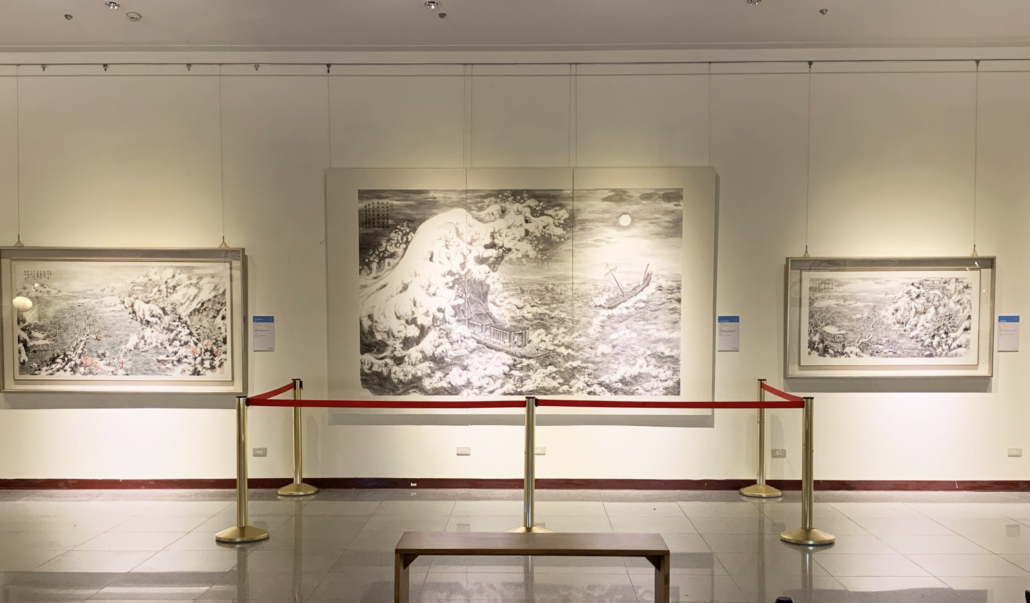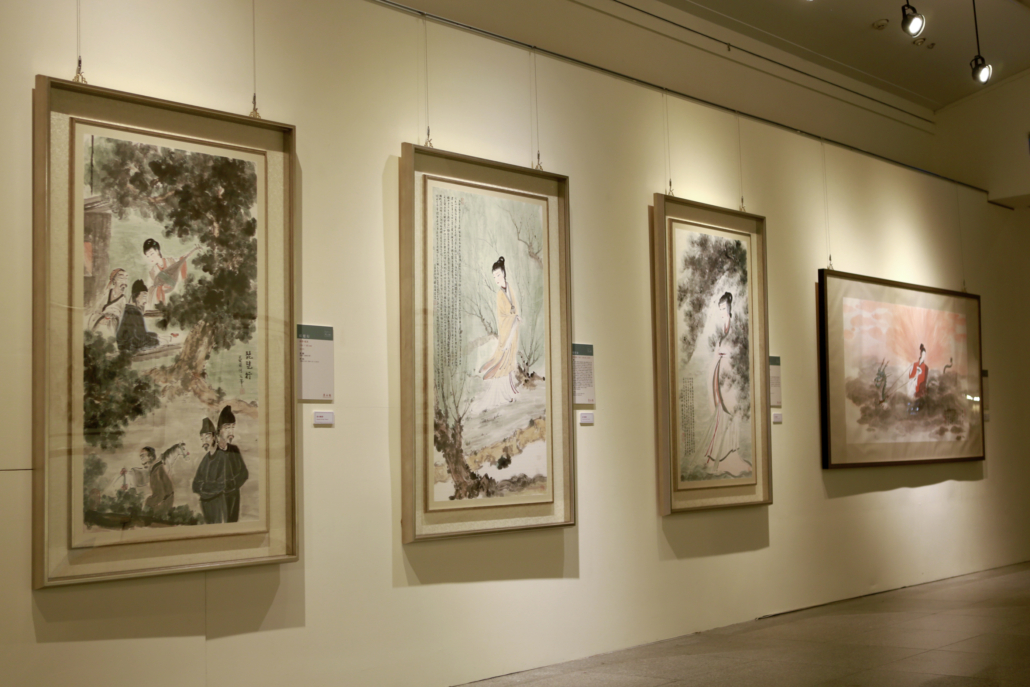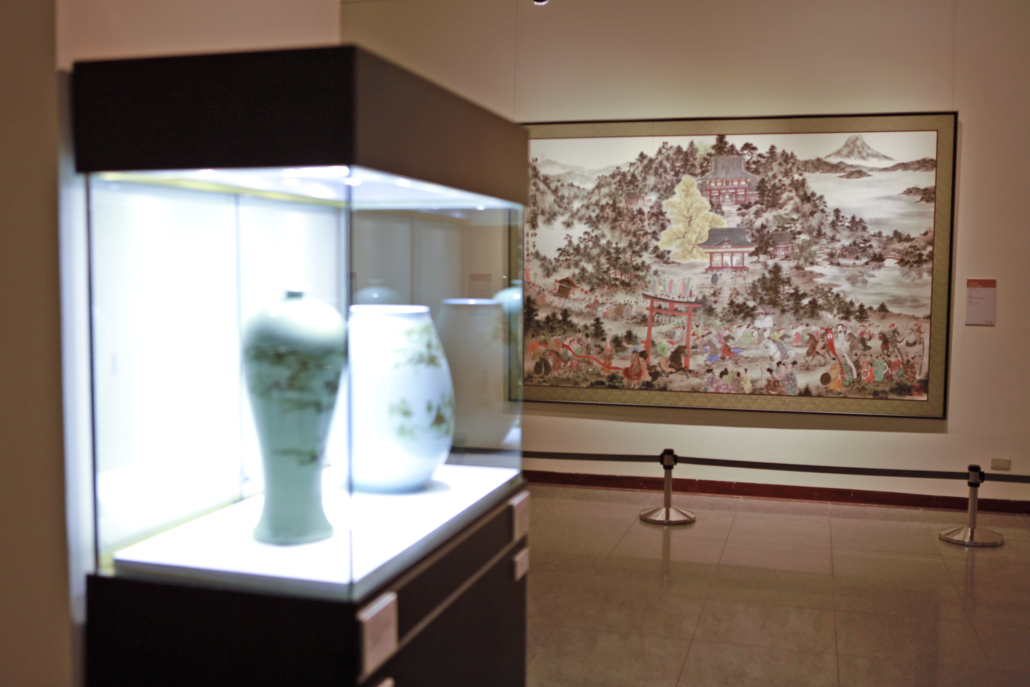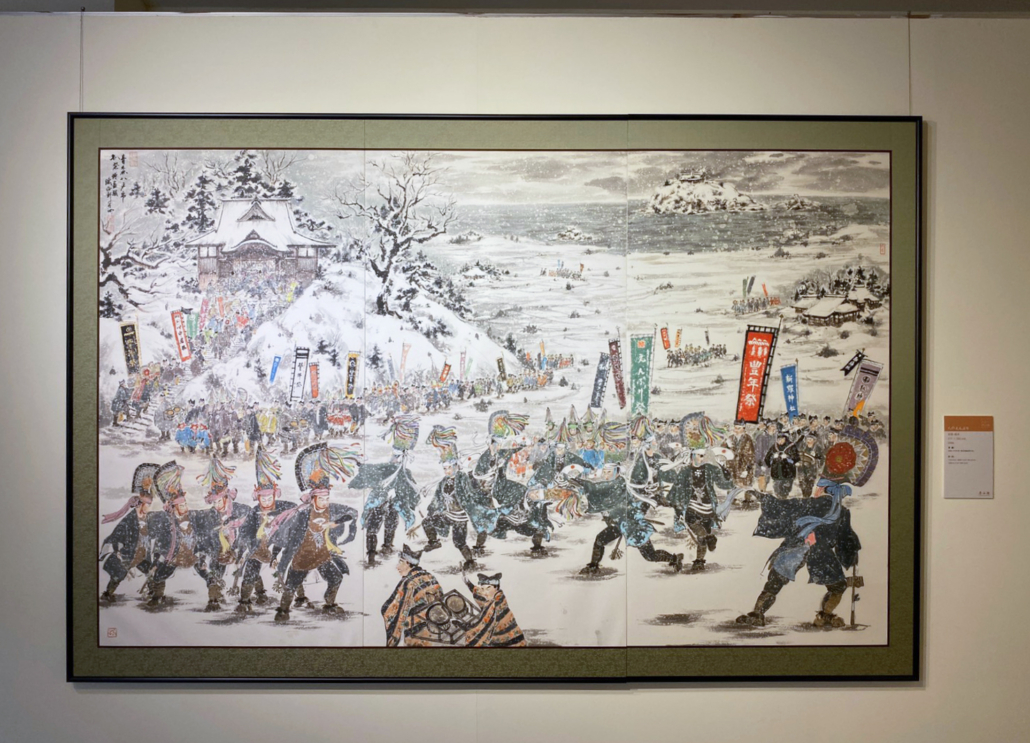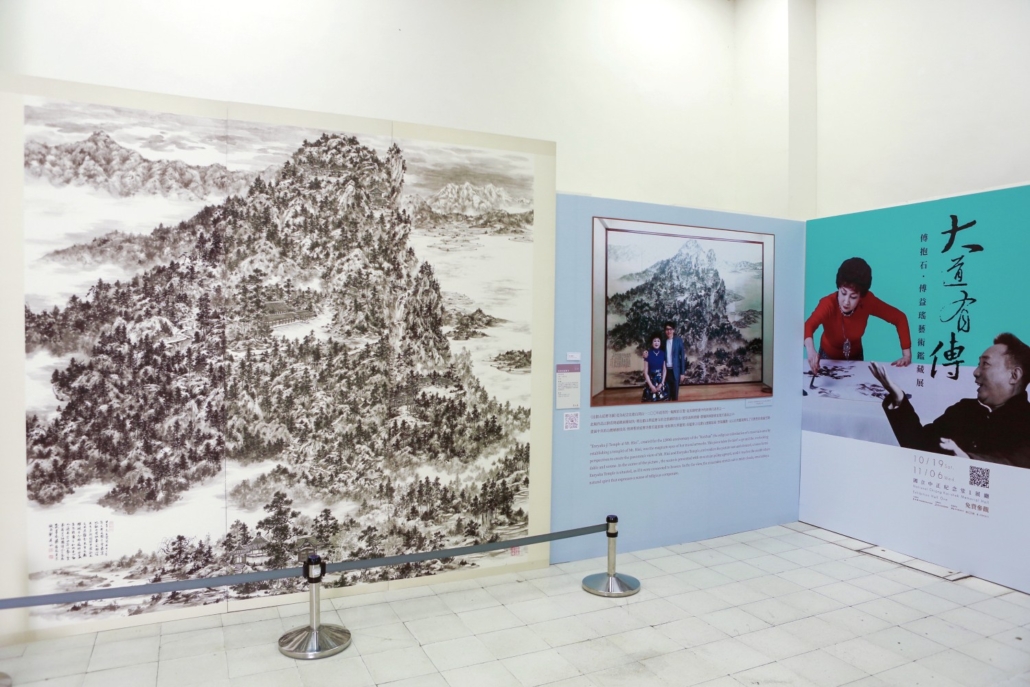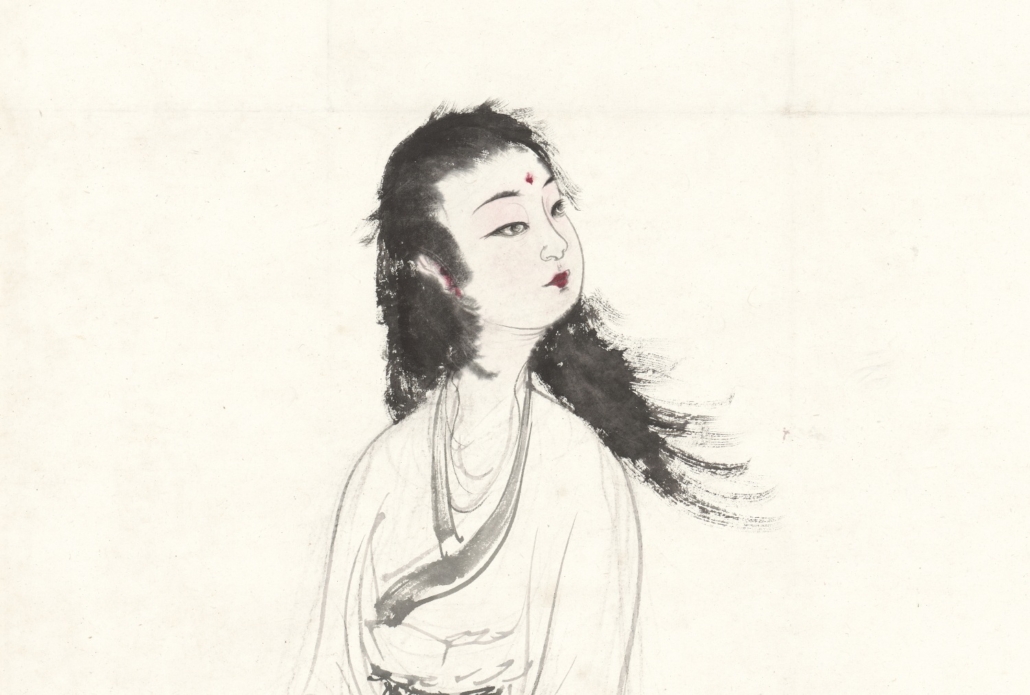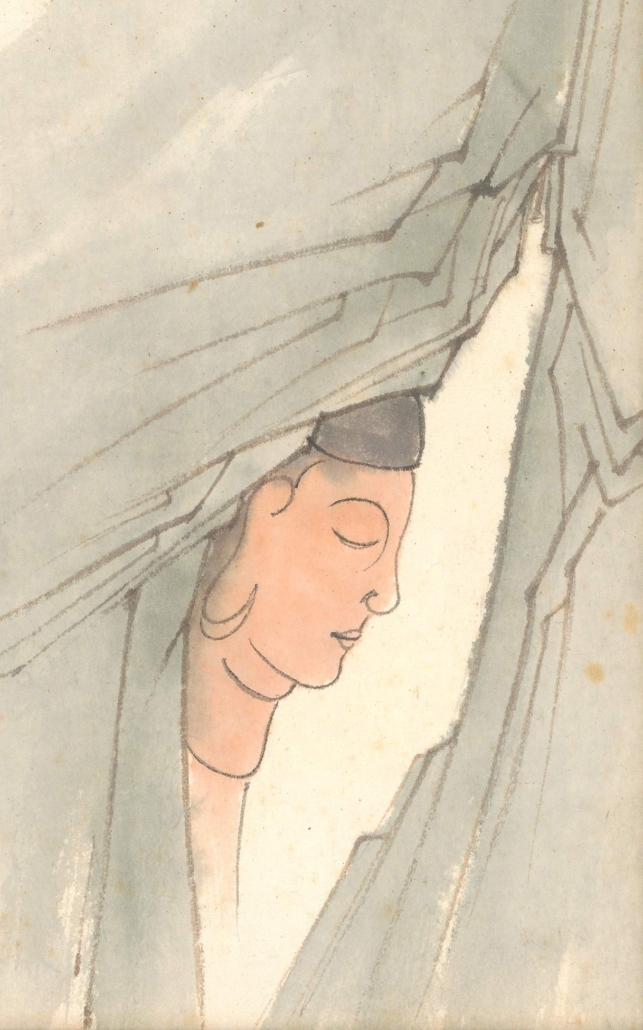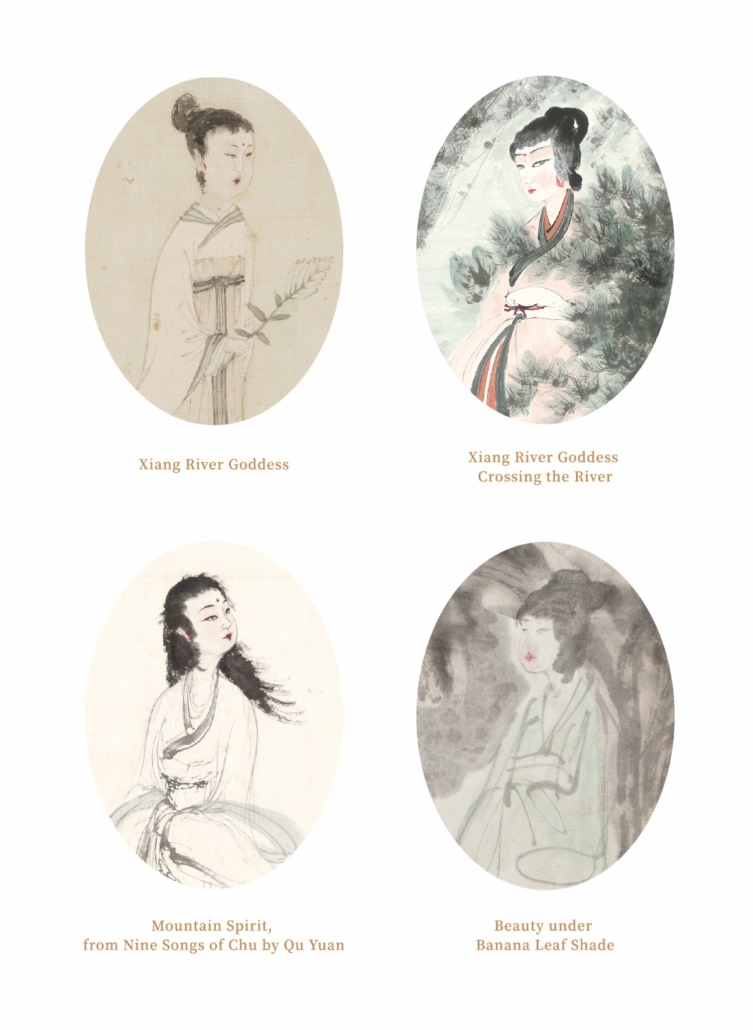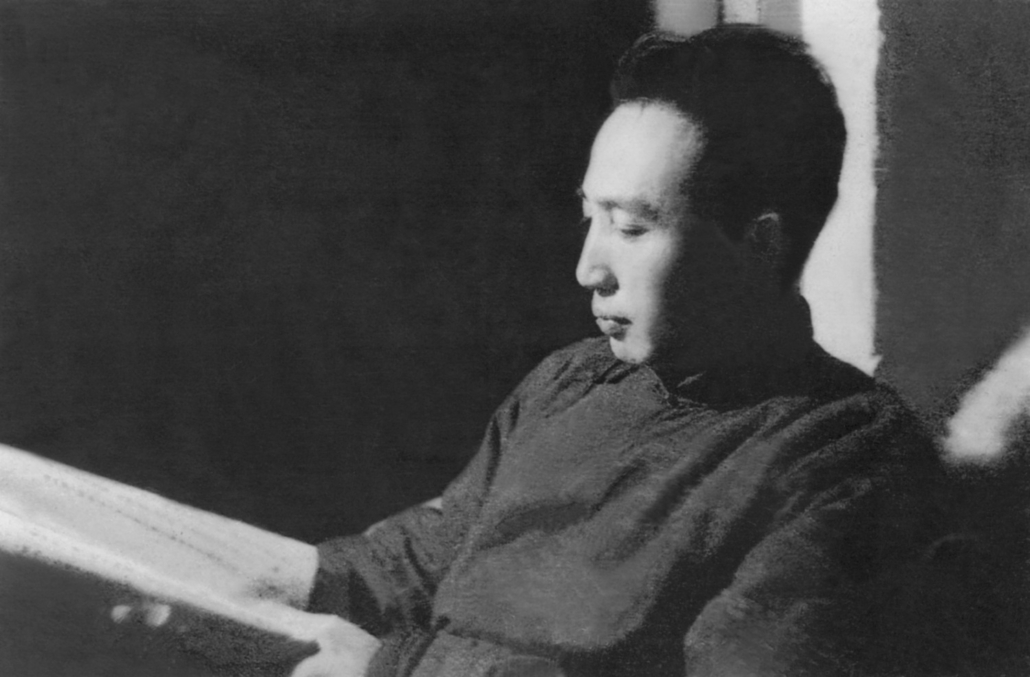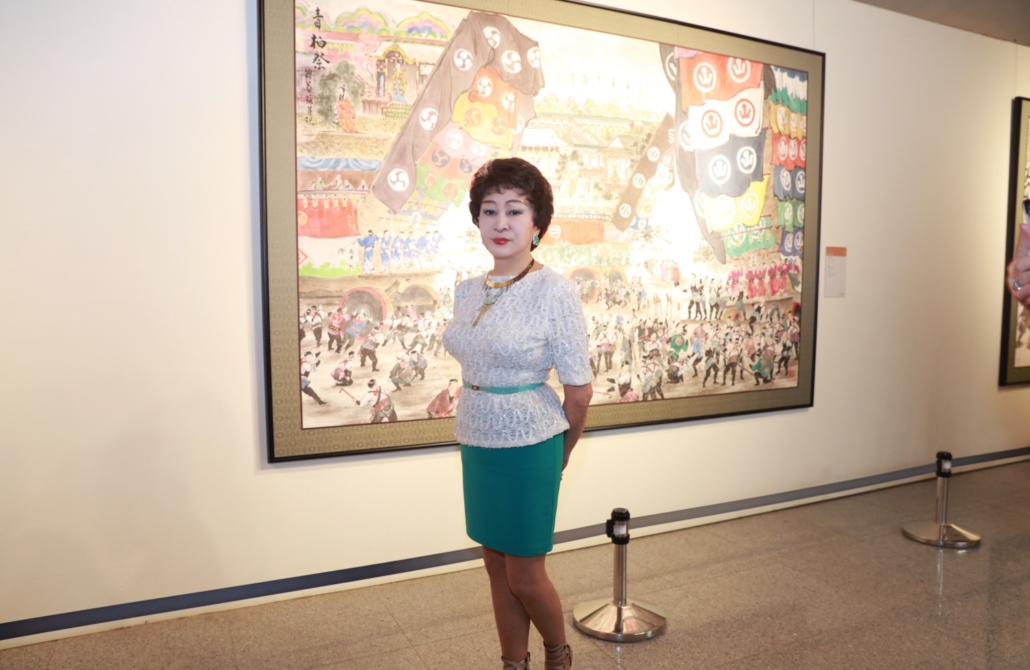Exhibition Period
October 19 – November 6, 2019
Opening Ceremony
November 2, 2019 (Thu.) 03:00 PM
National Chiang Kai-shek Memorial Hall 1st Exhibition Hall
Venue
National Chiang Kai-shek Memorial Hall
(No.21, Zhongshan S.Rd., Zhongzheng Dist.,Taipei City 100012, Taiwan)
In this exhibition title “Artistic Transmission: Art Exhibition of Fu Bao-shi & Fu Yi-yao” embodies the profound connotations of the Chinese character “傳” (chuán). It signifies the teachings passed from Fu Bao-shi to his daughter Fu Yi-yao, the deep familial bond rooted in their shared bloodline, and the aesthetic pursuit transmitted among refined literati. Fu Bao-shi’s lifelong credo—“to enrich the landscapes within one’s heart and master the techniques of the ancients”—serves not only as a guiding principle for his own artistic journey but also as an enlightening maxim for future generations. Beyond mere technical instruction, Fu Bao-shi’s influence on Fu Yi-yao lies in the nurturing of aesthetic sensibilities and the tempering of her artistic spirit. He frequently encouraged her to embody “self-reliance without cease,” a simple yet profound phrase that encapsulates his deep insight into aesthetics. This “self-reliance” transcends relentless effort; it manifests in the visual independence of her works, reflecting an aesthetic philosophy that fuses personal perceptions of the world with the techniques of ancient masters. In Fu Yi-yao’s creations, her father’s aesthetic ideals find vivid realization, and it is hoped that this “Fu family legacy” will continue to thrive and endure across generations.
This exhibition brings to Taiwan, for the first time, numerous national treasure-level artworks that have never left Japan. Featuring a diverse array of classic art forms—including calligraphy, painting, and porcelain—the display encapsulates the essence of Fu Bao-shi and Fu Yi-yao’s artistic evolution across various periods. Art enthusiasts no longer need to travel to Japan to experience these rare masterpieces firsthand. Highlights include Fu Yi-yao’s monumental wall paintings housed in renowned Japanese temples, such as Four Seasons at Sanzen-in and Kyoto Sanjūsangen-dō: Merciful Rain of Compassion Kannon; her folk festival series, selected as cultural support projects for the 2020 Tokyo Olympics, including Suwataisha Onbashira Festival and Nachi Fire Festival; the literati “poetic painting” series inherited from her father, such as Journey to Yu Stream and Charming Spring Scenery; the “imitating father’s brush” series that perfectly echoes Fu Bao-shi’s techniques, such as Imitation of Father’s Brush: Pipa Xing and Imitation of Father’s Brush: Xiangjun Crossing the River; the innovative “rain and snow scenery” series that builds upon her father’s alum-splashing method, including Snow Before Spring in the Year of Jiawu and Misty Peach Blossoms; and her collaborations with Chinese porcelain masters Huang Yun-peng and Xia Hou-wen—recipient of the “Lifetime Achievement Award in Chinese Arts and Crafts”—featuring blue-and-white and celadon works like Unrestrained Mountain and Water Sentiment, Snow-Covered Mountain Retreat, Li Bai’s Spring Night Banquet in the Peach and Plum Garden, and Du Fu’s Poetic Inspiration. These works, highly revered in Japan, offer a comprehensive and systematic exploration of her artistic journey, making this a rare and unmissable opportunity for visitors to savor.
Equally noteworthy are the authentic works of Fu Bao-shi featured in this exhibition. Among them is his representative piece Mountain Spirit from Qu Yuan’s Nine Songs, inspired by the ninth poem “Mountain Ghost” from Nine Songs by the ancient Chu poet Qu Yuan, as well as Xiangjun, a fan painting based on the third poem “Xiangjun” from the same series—crafted as his final work for his wife’s birthday. The exhibition also showcases several of Fu Bao-shi’s exquisite landscape masterpieces, each a testament to his genius. Fu Bao-shi’s works are exceptionally rare in the market. Since 2011, when his peak-period masterpiece Chairman Mao’s Poetic Album fetched nearly NT$1 billion, cementing its status as a leader in the “Billion Dollar Club” of the Chinese art market, subsequent works have consistently achieved nine-figure prices. In 2017, at the Beijing Poly Spring Auction, his final monumental landscape Majestic Mount Mao sold for nearly NT$800 million, making it his second-highest-priced work after Yunzhongjun and the Great Commander of Fate and Chairman Mao’s Poetic Album. The ability to assemble such a significant number of Fu Bao-shi’s works for this exhibition at the Chiang Kai-shek Memorial Hall is a truly exceptional occasion.
This exhibition meticulously gathers the artistic legacies of Fu Yi-yao and her father, Fu Bao-shi, presenting a wealth of previously unseen and extraordinarily rare masterpieces by Fu Bao-shi. When reading Fu Yi-yao’s inscriptions, one feels as though time dissolves, reuniting her with her father across the ages. We extend our heartfelt gratitude to scholars, luminaries, and supporters from the art world whose invaluable assistance made this exhibition possible. Jointly organized by the Mohailou International Art Research Institute and the National Chiang Kai-shek Memorial Hall, the Artistic Transmission: Art Exhibition of Fu Bao-shi & Fu Yi-yao not only brings national treasure-level works from Japan to Taiwan for the first time but also introduces world-class international art to local audiences. This event underscores Taiwan’s commitment to global cultural exchange, fostering a legacy of “Taiwan-Japan cultural dialogue” and “Taiwan’s cultural connection with the world.” We warmly invite all visitors to join us in appreciating this extraordinary artistic journey.
